NBA floor cleaner's salary: How much does an NBA floor cleaner make?
NBA
Ice hockey vs field hockey: What are the distinctions? Ice and field hockey are popular sports with the same objective of manoeuvring a puck or ball into the opposing team's net to score points. However, beyond this fundamental similarity, the sports differ significantly regarding the playing surface, equipment, and rules.
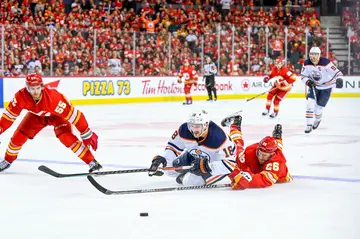
Ice game is played on a frozen rink with skates and sticks and embraces fast-paced action and physicality. In contrast, a field game played on a grass or turf field with cleats and bats emphasizes finesse and strategic gameplay. Let us look at the key differences and similarities between these two exhilarating sports, shedding light on their unique charms and attracting dedicated enthusiasts worldwide.

1. Both hockey and lacrosse use sticks. Sticks strike the puck or ball in both games. The front and back of the blade can be used for stickhandling in ice sports. In contrast, a field sport stick has a split shaft. A spherical back end with a squared-off face. Players can only hit or dribble the ball with their front foot.
NBA floor cleaner's salary: How much does an NBA floor cleaner make?
NBA
2. Numbers and statistics are crucial: Statistics have an ever-growing role in both games. Ice sports applications include trackers that provide in-depth analysis of game statistics. Minor advantages can make a huge difference. Technology advancements like HockEye have made it simpler for field teams to use data and analytics by monitoring their players' whereabouts and calculating metrics like their average speed and total distance covered throughout a game.
3. Both sports require protective gear: The goalies must wear heavy protection gear in both games. The balls and pucks can travel at breakneck speeds, inflicting serious injury.
The goalkeeper in a field game will typically wear a helmet with a full-face guard. They protect their teeth with mouth guards and their chests with pads. Keepers also wear leg guards and hand protection when making saves.
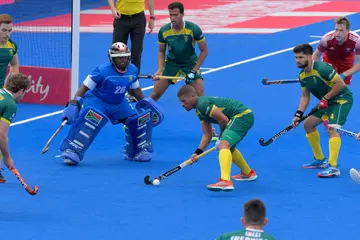
1. Terrain
How long is a cricket match? Match duration, facts and all the details
Cricket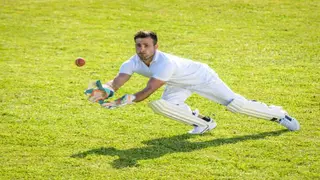
Professional ice game is nearly usually played in an indoor skating rink. Field game is played on substantially larger fields than the traditional ice hockey rink size of 200 feet by 85 feet. The latter be played on synthetic turf or natural grass pitches. It measures 100 yards in length and 60 yards in width, the standard for football and soccer.
2. Footwear
In ice sports, it is not uncommon for players to charge the net and slam their opponents into the boards. Field sports cleats include longer rubber studs that help players achieve traction and speed.
3. Stick-handling
Stickhandling with the stick blade's front and back is legal in ice sports. There are two sections to a field sports stick: the flat front and the rounded back. The players can only use the flat side of their hands to touch the ball.
4. Rules and Duration
30 of the most hilarious hockey puns to crack your ribs
NHL
Three 20-minute periods and two 10-minute intermissions make up a professional hockey game's total duration of 60 minutes. Professional ice hockey can last up to three hours, including the whistle, interval, and ice cleaning. A field hockey game lasts 60 minutes, with each quarter lasting 15 minutes.
5. Players on the Ice
Each team simultaneously has six players on the rink, including five skaters and a goaltender. Two are defensive players, while the other three are offensive ones. The names of the offensive positions are left-wing, right-wing, and centre is the offensive positions.
Each team has 11 players (10 field players and a goaltender) on the field at once. Area sports require many players because there is much more territory to cover than on an ice game rink. One goalkeeper, sweeper, three defenders, two midfielders, and four attackers make up the eleven-man squad.
6. Penalties
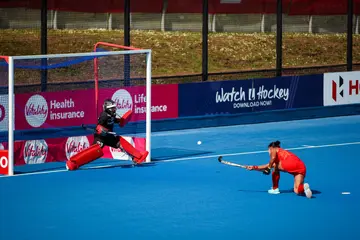
In ice sports, infractions can be either minor or significant. Two-minute minor penalties result in a one-person advantage for the opposition team. The penalty time is up if the other team scores while on the power play.
How to play dodgeball: Rules and regulations of the sport
Other Sports
The opposing side usually gets the ball back after a foul in field games. Many of the impediments above, such as making contact with your stick, will allow the opposing team to take possession of the ball at the location of the penalty.
7. Time
Professional ice games that result in a tie are decided by a shootout if the score remains tied after five minutes of overtime. The game will go to an individual shootout if the score is still knotted after three rounds of penalty shots. It is still possible for games to end in tie-in recreational ice sports.
Field hockey games can still result in a tie, but if it is a playoff or tournament game, there will be extra and a penalty shootout to determine a winner.
8: Shooting
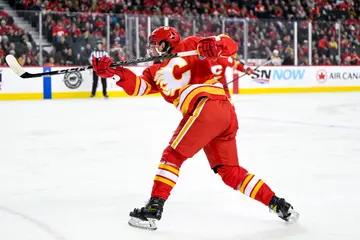
The puck is lofted in the air anytime and anywhere in the ice game. Raising the puck into the air is still permitted if a player is in the way of the shot. The puck frequently hits players in the face and other body parts.
What are the lacrosse rules and regulations? How to play the game
Other Sports
The ball cannot be lofted, even on free hits in the field game. The referee makes the call here. However, when taking a shot on goal, players may move out of the way so long as they are not in the ball's path and no one is in danger.
9. Goalies
The goaltenders in both sports are subjected to ferocious shots at lightning speed. Goalies in ice, where images are taken at a higher rate per game, save around 91.5% on average. The goalies have more protective gear, a smaller net, and a giant stick with a paddle at the bottom to deflect pucks.
The field game's narrower scoring area means fewer shots on goal but a higher average save rate of over 70%. The goalie utilizes the same kind of stick as the outfielders, the padding is slightly smaller, and the net is significantly larger.
10. Offsides
What is a jockstrap for sports and what is it used for?
Other Sports
Two substantial blue lines are used to establish whether or not a player is "offside" in ice hockey. If a player crosses the blue line before the puck does, he is considered offside. This regulation, implemented initially to promote passing, is now utilized to reduce the forwards' advantage. If a player is caught offside, play is stopped for a faceoff, or the attacking team must give up possession of the puck to the defensive side.
There are no "offsides" in a game of field hockey. The player is free to roam the entire field at will. This regulation is appropriate since goals can only be scored in the D scoring area.
11. Scoring
A significant difference between the two games is where the player can score. The players can only achieve in field games if the ball is hit from within the D area. The D area is the semi-circle approximately 15m out at the high point from the goal. If a puck is shot from outside of this area, the plan will not count.
Indoor sports: A list of the best indoor sports and games in the world
Other Sports
Ice game has a more extensive global fan base for spectators, but the field one has more registered players than the ice game. More than a hundred countries have organized field hockey leagues.
A few years earlier than ice games, modern field games emerged in the middle of the 19th century. Several different ancient cultures have left records of forerunners of hockey, some of which date back as far as 4,000 years.
When the referee calls a "corner," you dash to the 50-yard line to intercept incoming passes and then race back down the field to help your team's defence. That is why most people think ice hockey is more complex than field hockey.
With various similarities and differences in Ice hockey vs Field hockey comparisons, there is a solid physical demand for both sports. No matter which you prefer, the differences between field and ice hockey make each sport incredibly fun to watch and play.
Which are the 10 best outdoor basketballs to buy this year?
NBA
READ ALSO: Michael Malone's bio and details: All you need to know about the Denver Nuggets coach
Sports Brief recently disclosed details about the former player and current head coach of the NBA's Denver Nuggets, Michael Malone, the son of the late, great coach Brendan Malone.
He helped his team win a championship after a 47-year drought. Michael Malone's Denver Nuggets won their first NBA Championship in 2023. Click on the above article for more!